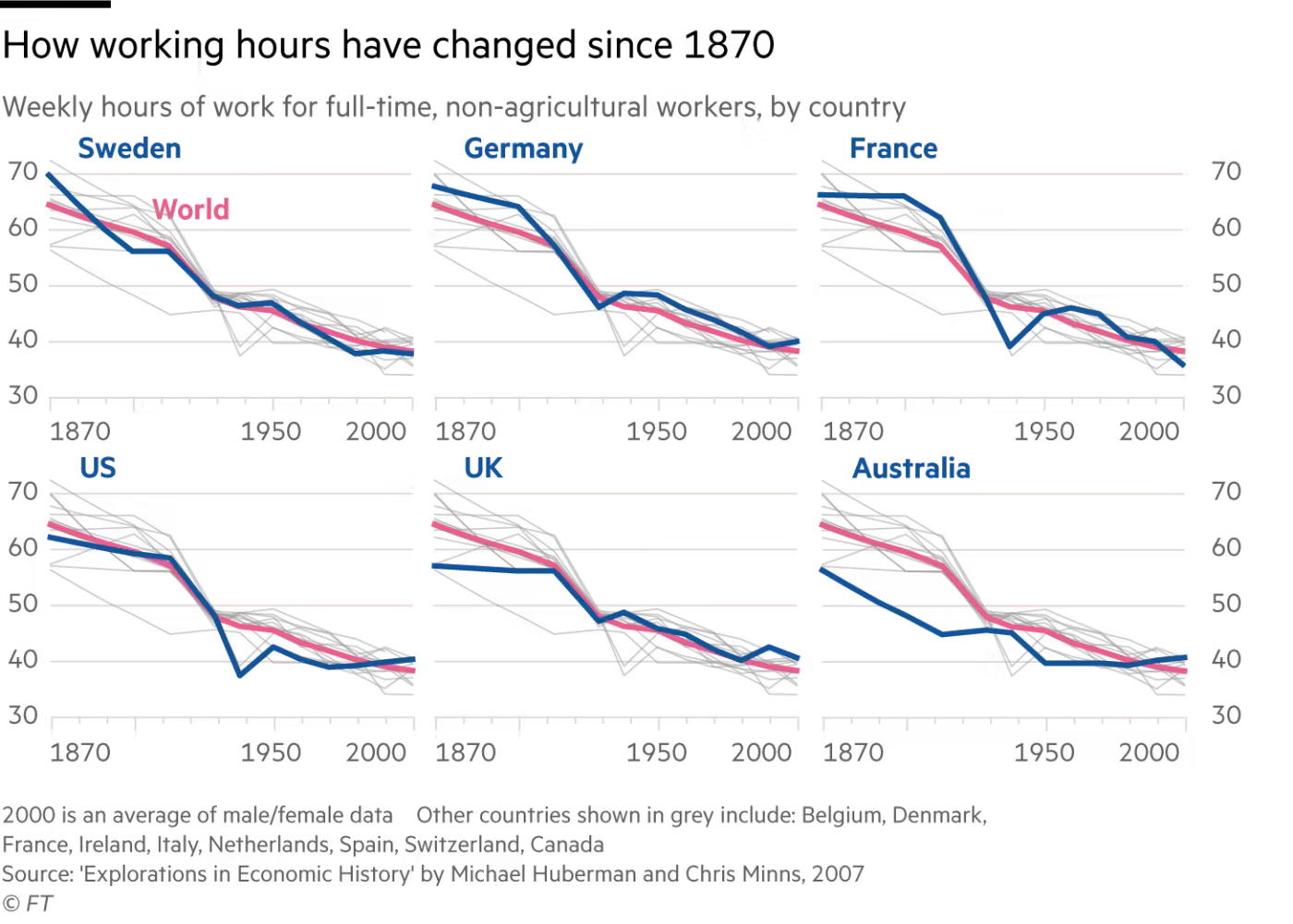Doomed to live in a Sisyphean purgatory between insatiable desires and limited means
I’m reading The Dawn of Everything: A New History of Humanity by David Graeber and David Wengrow. It’s an eye-opening book in many ways, and upends notions of how we see the way that people used to live.
This article suggests that 15-hour working weeks are the norm in egalitarian cultures. While working hours are steadily declining, we’re still a long way off — primarily because our desires and means are out of kilter.
New genomic and archeological data now suggest that Homo sapiens first emerged in Africa about 300,000 years ago. But it is a challenge to infer how they lived from this data alone. To reanimate the fragmented bones and broken stones that are the only evidence of how our ancestors lived, beginning in the 1960s anthropologists began to work with remnant populations of ancient foraging peoples: the closest living analogues to how our ancestors lived during the first 290,000 years of Homo sapiens’ history.Source: The 300,000-year case for the 15-hour week | Financial TimesThe most famous of these studies dealt with the Ju/’hoansi, a society descended from a continuous line of hunter-gatherers who have been living largely isolated in southern Africa since the dawn of our species. And it turned established ideas of social evolution on their head by showing that our hunter-gatherer ancestors almost certainly did not endure “nasty, brutish and short” lives. The Ju/’hoansi were revealed to be well fed, content and longer-lived than people in many agricultural societies, and by rarely having to work more than 15 hours per week had plenty of time and energy to devote to leisure.
Subsequent research produced a picture of how differently Ju/’hoansi and other small-scale forager societies organised themselves economically. It revealed, for instance, the extent to which their economy sustained societies that were at once highly individualistic and fiercely egalitarian and in which the principal redistributive mechanism was “demand sharing” — a system that gave everyone the absolute right to effectively tax anyone else of any surpluses they had. It also showed how in these societies individual attempts to either accumulate or monopolise resources or power were met with derision and ridicule.
Most importantly, though, it raised startling questions about how we organise our own economies, not least because it showed that, contrary to the assumptions about human nature that underwrite our economic institutions, foragers were neither perennially preoccupied with scarcity nor engaged in a perpetual competition for resources.
For while the problem of scarcity assumes that we are doomed to live in a Sisyphean purgatory, always working to bridge the gap between our insatiable desires and our limited means, foragers worked so little because they had few wants, which they could almost always easily satisfy. Rather than being preoccupied with scarcity, they had faith in the providence of their desert environment and in their ability to exploit this.
